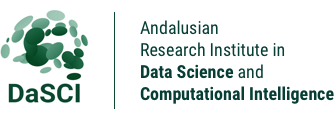Trushworthy Artificial Intelligence
Trustworthy Artificial Intelligence (AI) is based on seven technical requirements sustained over three main pillars that should be met throughout the system’s entire life cycle: it should be (1) lawful, (2) ethical, and (3) robust, both from a technical and a social perspective. The seven requirements are: agency and oversight; technical robustness and safety; privacy and data governance; transparency; diversity, nondiscrimination and fairness; societal and environmental and accountability) To attain truly trustworthy AI concerns a wider vision that comprises the trustworthiness of all processes and actors that are part of the system’s life cycle, and considers previous aspects from different lenses. A more holistic vision contemplates four essential axes: the global principles for ethical use and development of AI-based systems, a philosophical take on AI ethics, a risk-based approach to AI regulation, and the mentioned pillars and requirements.
Current DaSCI research lines:
- Explainable AI (XAI).Influential taxonomies for XAI, neural-symbolic approaches and enablers for trustworthy AI have been proposed. Motivated by the need to comply with trustworthy AI requirements and the EU AI Act, efforts focus on the development of auditing tools.
- Fairness in AI. In the pursuit of trustworthy AI, it must ensure that the data they use is unbiased, representative, and adequately protects the privacy and security of individuals.
- Privacy and Federated Learning. Federated Learning has emerged as a cutting-edge approach that allows Machine Learning models to be trained across decentralized devices or servers, without centralizing raw data. This collaborative learning technique maintains data privacy by keeping sensitive information localized, while still benefiting from collective intelligence.
- Robust and safety AI. interdisciplinary field concerned with preventing accidents, misuse, or other harmful consequences that could result from intelligent systems.
- Computational intelligence approaches for Trustworthy AI. Computational Intelligence (CI) is the theory, design, application and development of biologically and linguistically motivated computational paradigms. Traditionally the three main pillars of CI have been Neural Networks, Fuzzy Systems and Evolutionary Computation. The technologies based CI are useful to tackle the Trustworthy AI requirements.
Related Researchers:
Letra: |
||||
|---|---|---|---|---|
| Name | Area | Cat. | ||
| Casillas Barranquero, Jorge | casillas@decsdBQj@5rNLai.ugr.es | – | ||
| Díaz Rodríguez, Natalia | ndiaz@decsai.ugBAN_99mGUr.es | – | ||
| Fernández Hilario, Alberto | alberto@decsai.ugiL2U3XGr.es | – | ||
| Gacto Colorado, María José | mjgacto@ugr.QDJT85yes | – | ||
| González García, Pedro | pglez@ujaen.hOFqxDes | – | ||
| Herrera Triguero, Francisco | herrera@decsaIh9IYf7TyOTi.ugr.es | – | ||
| Herrera Viedma, Enrique | viedma@decsai.ugq6YOXXIDr.es | – | ||
| Luzón García, María Victoria | luzon@ugr3_nHP9xD6m.es | – | ||
| Martínez López, Luis | martin@ujaen.p94BjQnes | – | ||














